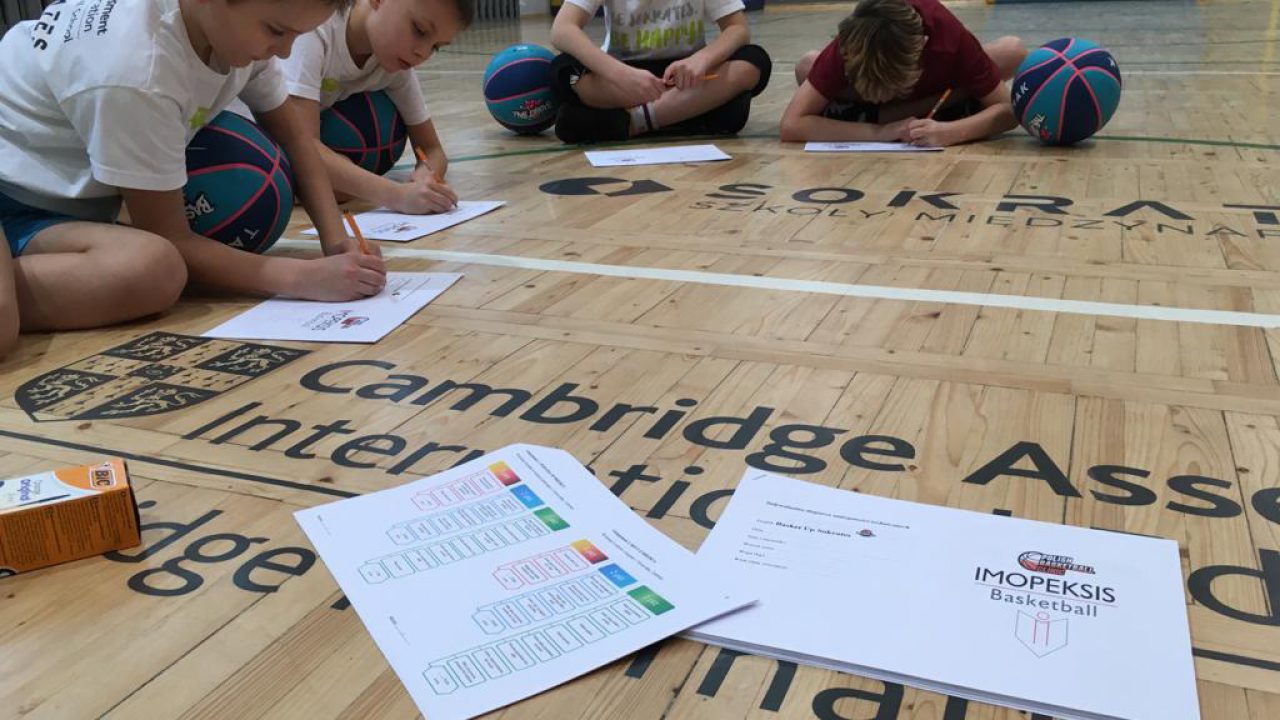
Sokrates daily
It’s great to be back together and work in groups! Maths is ok!

Communication skills are believed to be possessed by anyone who can speak. Communication is a conversation, right?
However, can we really have a conversation? 🤔
Among other things, in the way the talks are conducted, we can see the causes of conflicts. What to look for?
1. Stop emotions – take a deep breath and try to calm down the emotional storm that is raging within us. If we scream or use vulgar words, we can be sure that the other side will not listen to us. Because how do we feel when someone attacks us? We lock up or counterattack. That’s not a good way.
2. Listen carefully – it is not waiting for the moment to just insert your sentence, interrupting the interlocutor before they finish their speech, ending sentences after them – do you really know better what someone had to tell you? You listen selectively and only hear what you want to hear. You hang on one word taken out of context. It’s not like that! If we want to come to an agreement, we have to listen to all the statements of the other party. Ba! Often times, even ask a question to make sure we have understood. Are you doing that? 🙂
3. Don’t impose – remember that everyone may perceive a given situation differently. You express firm expectations of the other person who ceases to see the point in telling you the truth because they know that their opinion and their feelings will be downplayed. This is often the case in the parent-child relationship. For example, you do not accept the objection; you expect something to be done the way you want it to be. Think about it, is it possible to do it here, now, the way you want? Also pay attention to the tone of your voice. The sentence “Come on, do it the way you want.” can be said in many different ways. Understand? 😉
4. Judging, moralizing … – is your “best” also best for the other person? Is there only one possible cause or solution? We like to be “judges” and we don’t realize that this behavior often hurts or offends another person.
5. Try a different point of view – sometimes it’s a good idea to put yourself “in the place” of the other person. Think about what you would do then. Will we even be able to imagine ourselves in such a situation? It is worth remembering that what is good for me will not necessarily be as good for others. We often follow stereotypes, mental shortcuts, and forget about emotions and personal experiences. Try to create a distance to them.
6. Comparing others to yourself – if you can do something in half an hour, why didn’t the other person do it in 2? After all, everyone is a different person with different skills, possibilities and values. Comparing someone to ourselves often causes us conflicts.
7. Guessing – You try hard to guess what the other person is really thinking instead of … asking. You are afraid or ashamed, often fearing disagreement and different points of view. Being unsaid and creating scenarios in your head destroy our sense of security. And this, in turn, affects our emotions … is it worth it? 🙂
Communication is a river topic! There are still many aspects to talk about.
However, after this short, introductory discussion of the topic, one can ask a question – what is it like with this conversation? Can you do it? 🙂

It’s great to be back together and work in groups! Maths is ok!

Art competition for a portrait of General J.H. Dąbrowski has been settled! 1st place – Anna Scrupii 6a 2nd place […]

Our students worked with great commitment on gifts for Grandma and Grandpa’s Day.

This coming Saturday, the 23rd of January, the entire Socrates community is keeping its fingers crossed for Marta Wojtkiewicz and […]

Ms Paula creates graphics with the results of her students’ competitions and sent us a package full of mathematical congratulations! […]

We are not resting during the winter holidays. After three months of break, we resumed training of our teams preparing […]